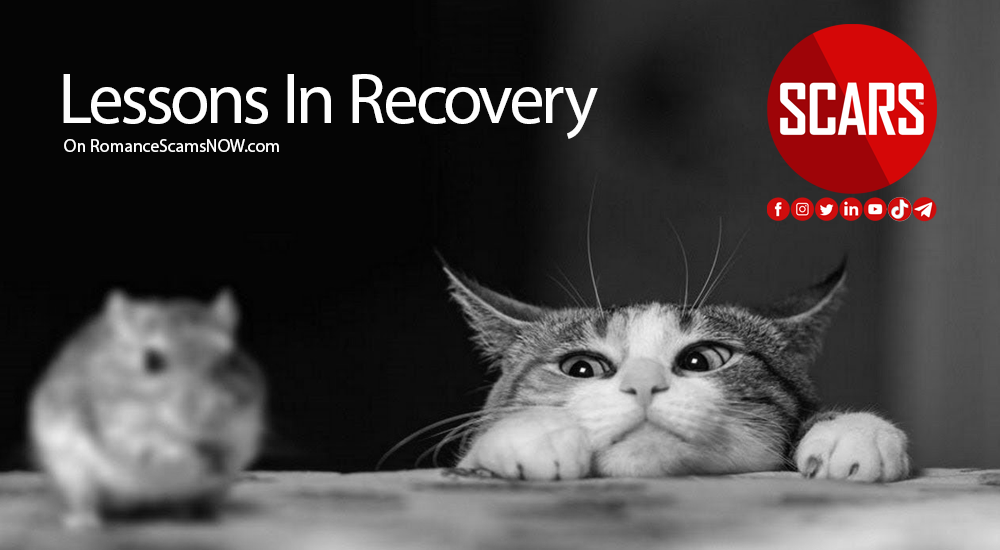The Lesson For Today About Scammers & Emotions
The lesson we ask you to learn recently is that scammers are no different than any predatory animal.
They don’t care about their prey.
When a cat hunts a mouse, it can seem cruel, but the cat is after a meal. The cat may purr afterward because it is happy it was able to eat and that it did well in its hunt. Cats often purr when you feed them.
Scammers are just predators.
They exhibit most of the same behaviors and reactions. They hunt for what they want – money – your money. But it truly is not personal for them, they do not really care about their victims. They may say they do on TV, but they do not lose sleep over it.
This is very hard for scam victims to accept that human beings can do this to other human beings, but these are your own biases preventing you from accepting that. Your emotions do not change who or what scammers are.
The big challenge for most crime victims is to accept that your emotions do not matter to the career criminal. The labels you apply are not reality, they are the externalization of your feelings. And because you attach them to the scammer, it makes it so much more difficult to let them go.
We know this is intensely personal for you. It is intensely personal for the mouse too, but not the cat. The same with scammers.
You might say they lack empathy, but do they really? Or is it just turned off? Is it just indifference?
Consider, when you cook food do you empathize with your food? Vegans say they do, but they still eat living things too (plants), as do we all.
In the end, reconciling the inhumanity (in our view) of the scammers, with our own views of what is right and wrong is futile, It does not help you get past this experience and in fact, holds you back.
It is incredibly hard to accept this simple fact because you are a person and you matter and you are emotional. We can’t get our head around the fact that humans through the ages prey on other humans (Silence of the Lambs?) Humans all have the capability for extreme evil.
But the hardest part to accept in this is: not that they purposefully set out to do evil – they don’t, they are indifferent to evil – because it is not even a consideration for them. Their attitude is indifference.
That is the hardest thing to accept!
That is the thing that will ultimately let you move past this experience. The fact that while you personally were targeted and manipulated, hurting you was not their objective – their objective was just the money. You were not a consideration for them. They were indifferent to what you experienced.
The closest analogy is Termites. They consume to live. They eat your house, but there is no emotion involved. When you find them you call an exterminator – also with indifference to what they want or feel.
Early victims will have a very hard time understanding this. That is normal. Don’t even try yet. But later as grief settles down, understanding this will help you get to acceptance.
You will still get mad, you may still want to call them names, but you will know that it is just internal noise – inside your head – and it has no relevance for the scammers.
The final justice is for us to be equally indifferent as they are arrested and then they can experience what happens to prey. Then they can see their own pain as the indifferent justice system puts them in a box and ignores them.
You may feel that it will never happen, but it is happening. Over 130,000 scammers were arrested last year alone.
In time, the arms race becomes balanced between what society will accept and what the criminals want. Our collective job is not to apply our own emotions to criminals, but to help society decide what level is acceptable – this is true of all crime.
We believe that there should be ZERO tolerance. All criminals should be treated to the indifference of society, but we also believe that we should apply a standard of empathy in the process.
We hope you will get to a point where you can accept the reality of these crimes, and then the next time that you vote that you will focus on zero tolerance for criminal predators because that is the best way to honor yourself and all those preyed upon by these criminals.
This is the way!




Leave A Comment